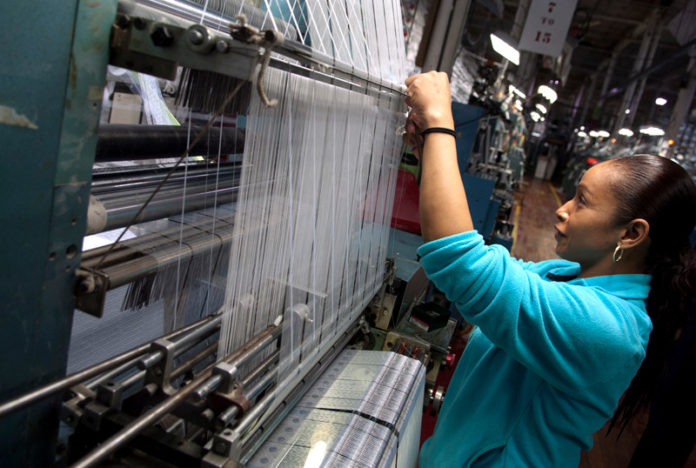
Thomas Rich, co-owner of New England Boatworks in Portsmouth, is one of the many small businesses in the state located in an enterprise zone. Changes made in the state tax code in 2010, however, now prevent him from claiming tax credits for creating jobs.
“That change affected 90 percent of the businesses in enterprise zones,” Rich said. “It eliminates the backbone of small business.”
In 2010, lawmakers changed the state’s income tax structure, passing legislation that, among other things, lowered the top marginal rate from 9.9 percent to 5.99 percent to improve Rhode Island’s tax ranking. The measure also eliminated an individual taxpayer’s ability to use enterprise-zone tax credits for job creation on personal tax returns. For “pass-through” companies such as sole proprietorships, partnerships, LLCs, LLPs and S-corporations, – smaller businesses – income and expenses are claimed through their owners, who also reap the benefits of the credits on their personal tax returns. Now, because of the 2010 rules, only C-corporations, larger companies, can claim the credits.
Municipal officials responsible for economic development in affected areas are hopeful bills in the General Assembly will amend those changes. They say that without such legislative help, enterprise zones are stripped of their incentives and run counter to promoting business in the state.
Before the changes, the program brought meaningful benefits to New England Boatworks, Rich said.
The credits enabled the company to grow from 30 employees in 1992 to 140 at its peak before the recession. It currently employs 110 people, 30 of whom were recently rehired.
“We have been able to build our employment. … Over the years when we were building this company, if it wasn’t for the tax credits, we couldn’t have done this,” he added.
The enterprise-zone program began in 1992, with a goal of making economically depressed sections of the state – generally long-established commercial districts – desirable places for companies to occupy. Its merits, however, have been questioned by several legislators, as well as former Gov. Donald L. Carcieri, who believe the cost to the state in lost tax revenue isn’t worth the end result.
“[Pawtucket] recognizes that most of its business base is comprised of small businesspeople,” she said. “We have to remind people that you have to create jobs in order to get that credit. Because it’s based on new hires, they are only new hires once, so it’s not as if the company gets the credit every year; if you don’t hire people, you don’t get it.”
Pawtucket-based North East Knitting, a manufacturer of knitted and woven elastic textiles, is another local employer eager to see the tax credit reinstated for smaller companies.
“We were eligible for the credit in the past. It’s very important to our company,” said Vice President Alexander DaRosa. “It gives us some flexibility in adding jobs.”
After state review, the Pawtucket/Lincoln enterprise zone received re-designation for another five years on April 16. The city has experienced financial difficulty for the last several years. In mid-December, Fitch Ratings affirmed the city’s bonds at “BBB-” and its outlook was upgraded from negative to stable.
“You can be eligible to participate in the enterprise-zone program on one hand, but you can’t get the benefits for job creation because they changed the income tax law in 2010,” complained Herb Weiss, economic and cultural affairs officer for Pawtucket. “They slashed out 80 to 90 percent of the participating businesses.”
Two bills would add the enterprise-zone tax credit to the list of tax credits available to taxpayers in computing their tax liability. The Senate Finance Committee heard testimony on April 3 but did not act on it. The House Finance Committee recommended the measure be held for further study on April 11.
Sen. Daniel DaPonte, D-East Providence, chairman of the Senate finance panel, and Rep. Helio Melo, D-East Providence, chairman of the House Finance Committee, did not immediately return calls seeking comment.
Rep. Raymond E. Gallison Jr., D-Bristol, a member of the House finance panel, favors the bill. “The [cost of the credit] is offset by the amount of people that are put to work in an enterprise zone. The amount of money we would spend on a credit on an enterprise zone would be less than what we would receive in personal income taxes,” he said.
Weiss testified at the House hearing, as did officials from Providence and Portsmouth, while other communities submitted written statements. Zones are located in Bristol, Central Falls, Cranston, Cumberland, East Providence, Lincoln, Pawtucket, Portsmouth, Providence, Tiverton, Warren, West Warwick and Woonsocket. Notably, Central Falls has filed for bankruptcy, East Providence is under state guidance in an effort to avoid bankruptcy, and financial struggles in Woonsocket and West Warwick have long been established.
According to Weiss, during the period July 1, 2010, to June 30, 2011, there was only one city business that became a new enterprise-zone member. The decline in new businesses – there were 19 the previous year – might be due to the change in personal income tax code, Weiss said.
“The governor wants to let that reform play out before changing any part of it,” she said. “Nearly all [enterprise-zone] credits were eliminated to pay for the rate reduction to the margin of 5.99 percent, to pay for the lost revenue.”
On April 24, the governor and the R.I. Economic Development Corporation adopted a plan to stimulate urban communities and assist small businesses with a new “Main Street Corridor District” program for areas in Central Falls, Pawtucket, Providence, West Warwick and Woonsocket. While details have yet to be released, the plan appears similar to the enterprise-zone program, and contains no tax credits as of yet. Hunsinger did not immediately return a call seeking comment on whether the new program is intended as a future replacement for the enterprise-zone program.
William E. Clark, director of development for Portsmouth, wants the enterprise credits reinstated. A March review by the state budget office projected the program would cost $547,340 more in 2013 if small businesses were allowed to again claim the credit, but he says the review didn’t consider revenue generated by the new hires.
Clark says the average salary generated by the program was $42,456 statewide in 2010. “I think that all too often people think that these are minimum-wage positions.
“They are not looking at the positive impact of an average of 652 annual new jobs [statewide] over the last four years” before the 2010 changes, Clark said.
“We’re all about unemployment; the state is at 11.1 percent and Massachusetts is at 6.5 percent,” he said. “It’s all about the jobs. … It’s these small businesses that are going to make things happen.” •












